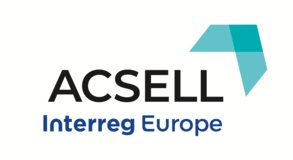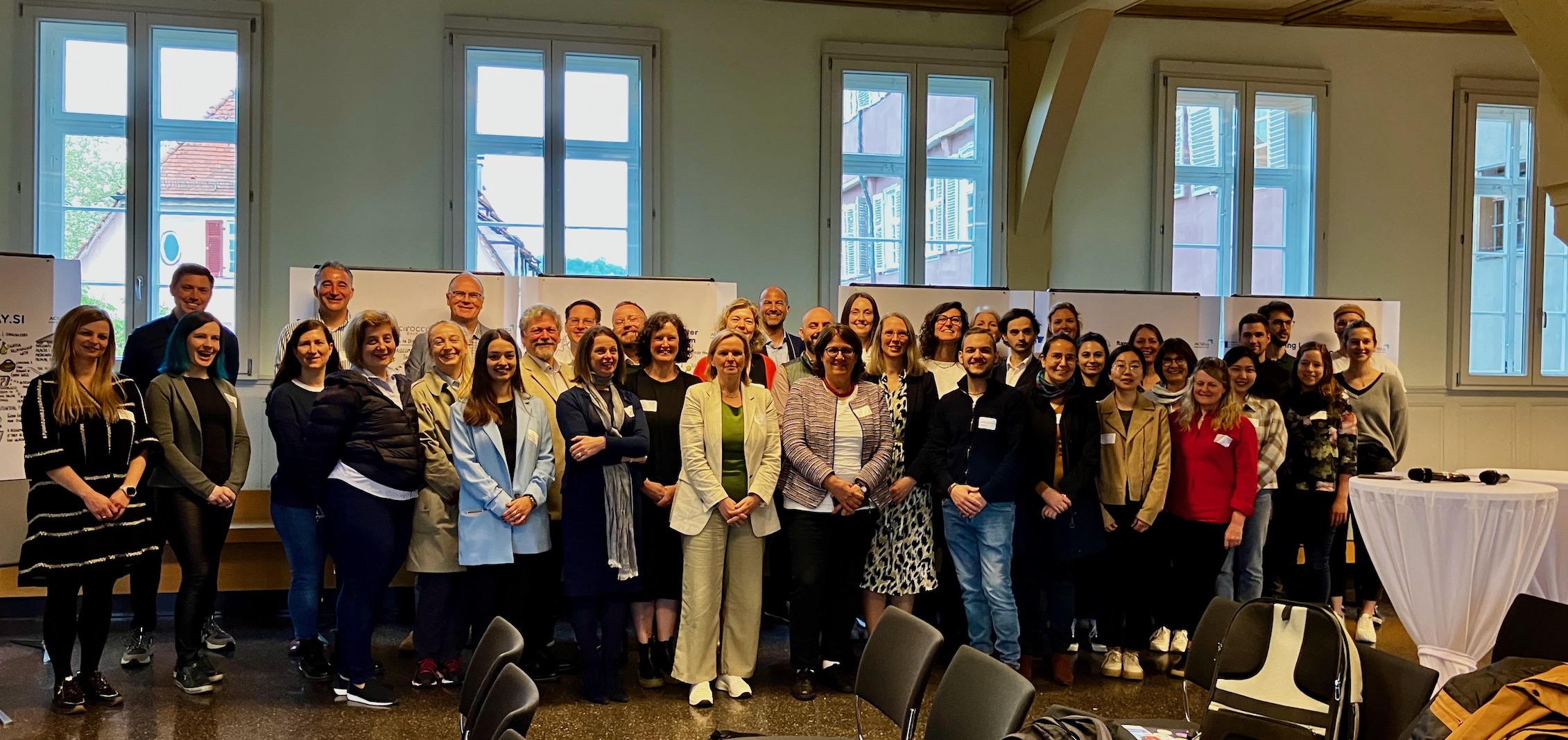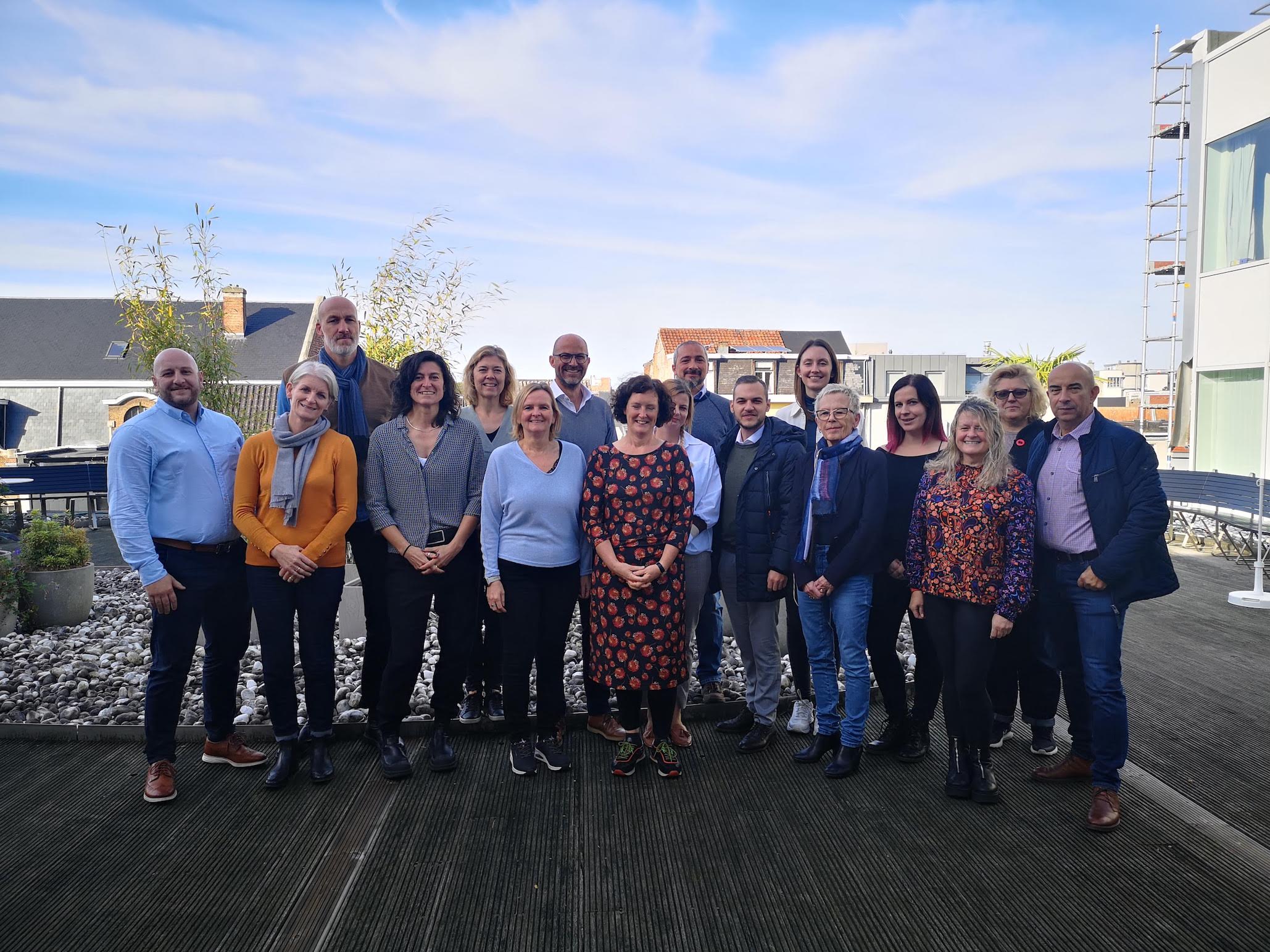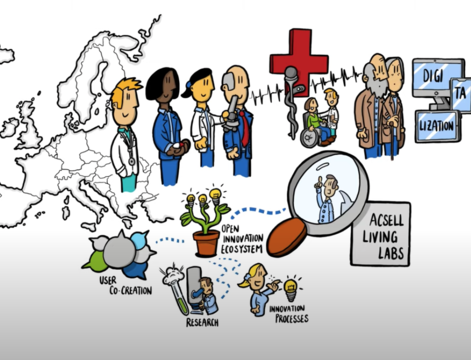Mega trends like digitalization are transforming all areas of our lives. Small and medium-sized enterprises (SME) are also affected by these changes and need to adapt in order to remain competitive. Living labs, which are ‘user-centered, open innovation ecosystems based on a systemic user co-creation approach, integrating research and innovation processes in real life communities and settings’ (European Network of Living Labs), provide great opportunities for SMEs to face these changes by accelerating their innovation capacities. ACSELL is an Interreg Europe project which highlights the need, and opportunity, for European regions to learn from each other’s experiences and good practices. Thus, it focuses on distilling and creating favorable (innovation) policies and framework conditions for SMEs. The project kickoff took place in Stuttgart on December 2, 2019, with a keynote, followed by a roundtable discussion, on how SMEs can benefit from open innovation, the living lab approach, and policies that cater to the needs of local stakeholders and allow for their active participation within a European network of several regions.
So far, the benefits that could be gained by pursuing a living lab or open-innovation approach have been frequently overlooked by companies. With open innovation and the living lab approach, everyone is brought together because the knowledge must be distributed. The handling of this distributed knowledge enables transparency while at the same time requiring the establishment of relationships and trust between all of the partners involved. Working with this living lab or open-innovation approach will therefore help to build these relationships and this trust that the SMEs, SME partners, and the community would benefit from for sustainable cooperation and the continued sharing of ideas.
For the first time, companies get a chance to define their own change process in a creative and collaborative way, so that they can pursue a new path by systematically discontinuing the old. Thus, by engaging in cooperation with different actors, SMEs can develop their own business model, realize their own strength, and discover capacities for innovation they would not have had. In a way, the approach resembles the advice given by the Chinese proverb to ‘cross the river by feeling the stone’.
In the subsequent roundtable discussion, the audience got the chance to dive deeper into the topic by providing some practical examples of their own work. For instance, LiCalab, a living lab from Belgium, supports businesses and organizations in the health and welfare sector by testing and validating their innovation with end users in their own working and living environment. They are working together with SMEs, but the ‘main thing for them, is to bring in the end users’, Ingrid Adriaensen, Business Manager at LiCalab.
NHS used this way of involving the people, the users of health and social care services by public consultations in 2011, with the central question of how the Scottish citizens would want public services, including health care, to be delivered to them. The crucial outcome of this survey was that, in order for public services to be efficient, they ‘must be designed with people and for people’ (Andrea Pavlickova, NHS). A result at the end of this survey was the creation of new integration boards in the health and care service system in Scotland, with a decisive change in the legislation. Now in Scotland there is legislation that requires user involvement in the delivery of social and health care services. These boards now bring together health and social actors, users, SMEs, the private sector and third sector organizations. They are all involved in the process and jointly design various services. There is a government legislation in place now that facilitates the end user’s involvement which helps to bring everyone together to find an innovative solution to their problems.
Overall, there are two things that are essential for the ACSELL project. First, learning from each other is the key driver for the project. By having different regions at different stages of progress and involvement in a living lab approach all over Europe there is a big opportunity to learn each other’s best practices and try to adopt transferable parts from one region to another. Second, the project is trying to create awareness for the living lab approach to accelerate SME innovation capacities.
The kickoff meeting about SMEs, open innovation, and the living lab approach was closed with Marlon Brandos words: „Only those who go their own way cannot be overtaken by anyone.“ Living Labs can provide SMEs help on finding and going their own way.
by Niklas Hegele, Markus Trämer and Christine Hopkins











